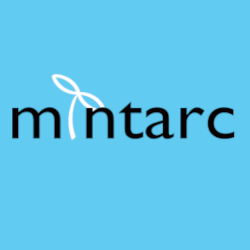EtherPad
From Mintarc Forge
Etherpad is an open-source, real-time collaborative text editor designed to enable seamless teamwork and efficient document editing. Initially launched in 2008, Etherpad was one of the first web-based tools to achieve true real-time collaboration, allowing multiple users to edit a shared document simultaneously while seeing changes reflected instantly. In 2009, Etherpad was acquired by Google and subsequently released as open-source software, making it widely accessible to developers and organizations. Its development is now overseen by the Etherpad Foundation, with contributions from a global community of developers.
At its core, Etherpad allows users to create collaborative documents known as "pads." Each pad is assigned a unique URL, which can be shared with collaborators for immediate access. The platform uses color coding to distinguish edits made by different users, making it easy to track contributions in real time. Pads also include a built-in chat feature that facilitates communication among collaborators without requiring external tools. This combination of real-time editing and integrated communication makes Etherpad ideal for brainstorming sessions, team projects, educational settings, and any scenario requiring collaborative document creation.
Etherpad supports essential text editing features such as formatting, bullet points, and hyperlinks. It also provides advanced functionalities like version control through its "time slider" feature, which allows users to review the entire history of changes made to a document. Pads can be exported in various formats, including plain text, HTML, OpenDocument (ODT), Microsoft Word (DOCX), and PDF. Additionally, Etherpad supports importing documents in compatible formats for further editing.
One of Etherpad’s key strengths is its extensibility through plugins. The platform offers a well-documented API and a wide range of plugins that can enhance or customize its functionality. For example, plugins can add features like tables, spell-checking, or integration with other tools such as project management systems. This flexibility makes Etherpad highly adaptable to different use cases and organizational needs.
Etherpad's open-source nature allows it to be self-hosted on private servers, giving organizations full control over their data and ensuring compliance with privacy regulations. This self-hosting capability is particularly valuable for institutions that handle sensitive information or require strict data sovereignty measures. Public instances of Etherpad are also available for those who prefer not to manage their own infrastructure.
From a technical perspective, Etherpad is implemented in JavaScript and runs on Node.js. It uses operational transformation (OT) algorithms to ensure real-time synchronization of edits across all users. The platform's lightweight architecture enables it to scale efficiently, supporting thousands of simultaneous users on well-configured servers.
Despite its many advantages, Etherpad has faced challenges related to security vulnerabilities in the past. For instance, critical flaws such as cross-site scripting (XSS) and argument injection vulnerabilities were reported in 2021 (CVE-2021-34817 and CVE-2021-34816). These issues highlighted risks such as unauthorized code execution and data theft but were addressed through patches in subsequent updates (e.g., version 1.8.14). However, administrators are advised to exercise caution when installing plugins from untrusted sources and ensure their instances are regularly updated.
Etherpad also emphasizes privacy by design. Unlike many proprietary platforms that require user accounts or collect extensive metadata, Etherpad can operate without storing personal information beyond IP addresses for basic functionality. Pads can be password-protected for additional security, ensuring that only authorized users can access sensitive content.
Etherpad is a flexible tool for real-time collaborative editing that combines simplicity with features like version control and plugin extensibility. Its open-source model ensures transparency and adaptability while enabling self-hosting for maximum data control. Although it requires proactive management of security updates and plugins, Etherpad remainsto be a robust solutions for teams seeking an alternative to proprietary collaborative platforms like Google Docs.
